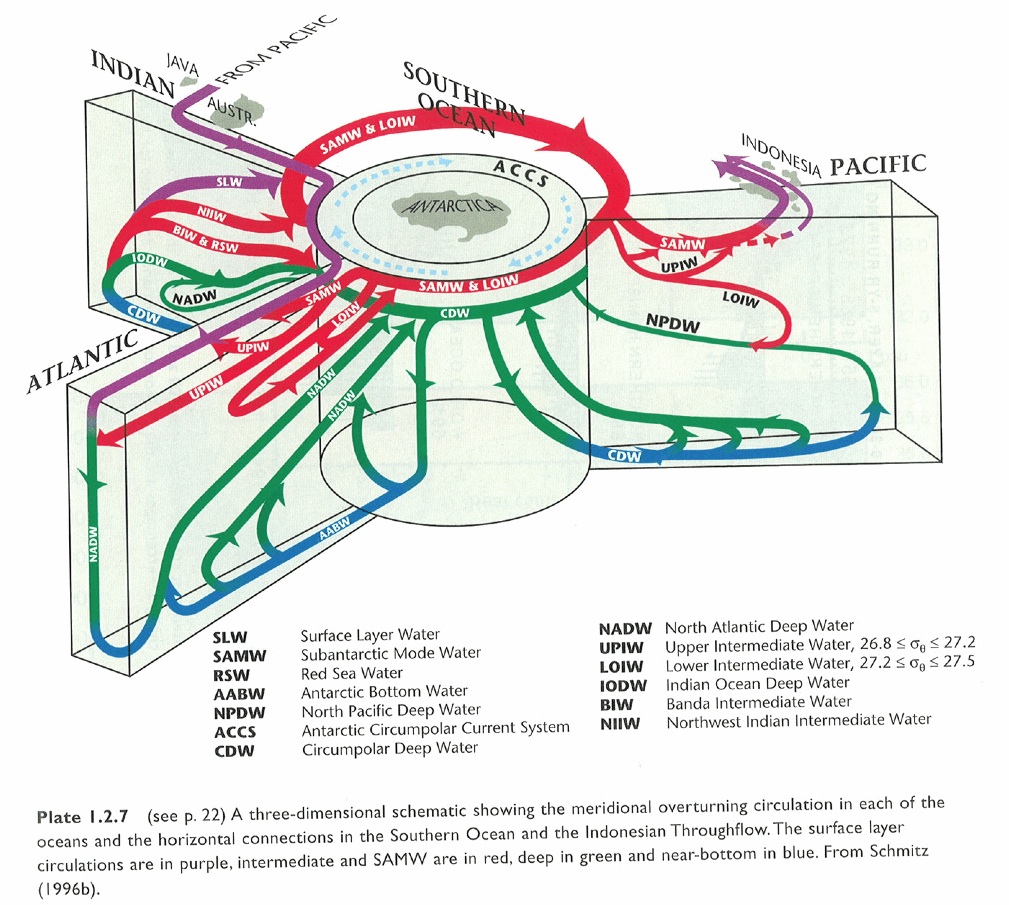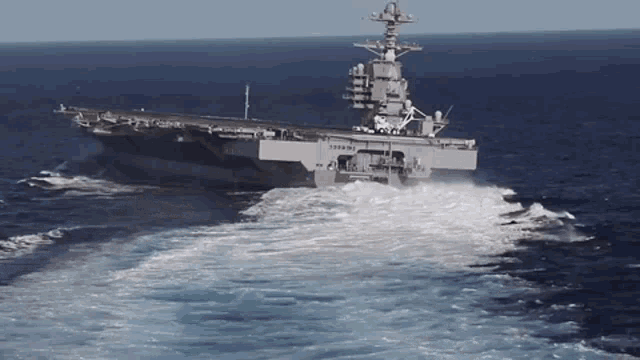
Image from Siedler et al. 2001.
|
Or, Notions for the Motions of the Oceans.
Examines physical characteristics, processes, and dynamics of the global ocean to understand circulation patterns and how they relate to ocean biology, chemistry, and climate change. Assignments address ocean's role in the climate system; ocean observations and models; the origin, distribution, and dynamics of large-scale ocean circulation and water masses; energy and freshwater budgets; and variability of the coupled system on seasonal to centennial timescales e.g. El Niño. Intended for geological and physical sciences undergraduate and graduate students with quantitative skills and an interest in oceans, climate, paleoclimate. Pre-requisite: GEOL 0250, GEOL 0350, PHYS 0720, or MATH 0180. Offered alternate years, previously offered as GEOL1100.
Baylor taught this class in
Spring 2019,
Spring 2017,
Spring 2015,
Spring 2013.
Proceedings volumes
Spring 2019,
Spring 2017,
Spring 2015,
Spring 2013.
Spring 2010.
Spring 2008.
Spring 2007.
You can access the
syllabus,
proceedings,
class calendar, notes, and reading
|

